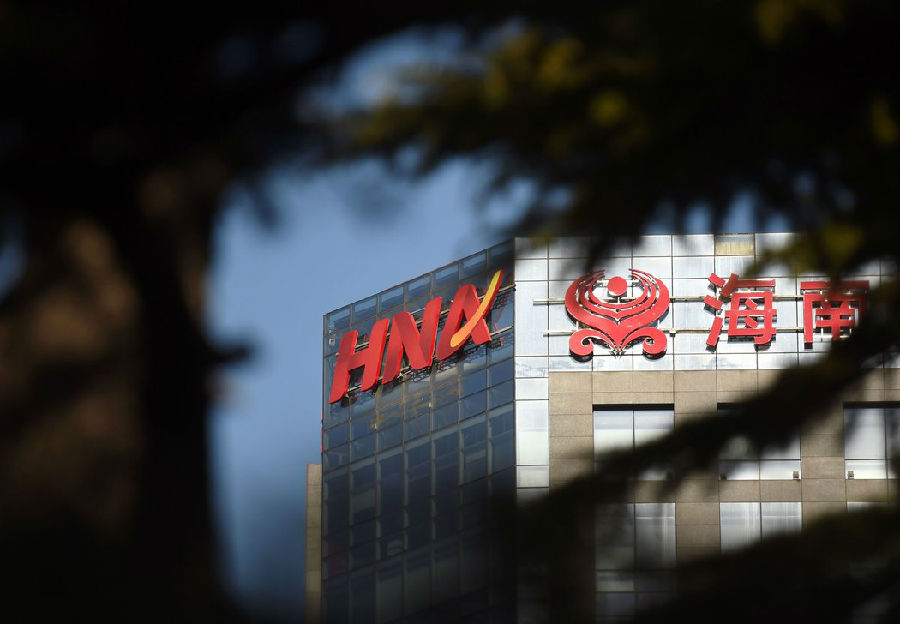The Committee on Foreign Investment in the United States,
先前,外國投資委員會
which previously only had the authority to review transactions in which a foreign investor took a controlling stake of an American business,
只有權(quán)利審查取得了美國企業(yè)控股權(quán)地位的外國投資商的交易情況,
is now reviewing a broader range of transactions,
如今,該委員會可審查的交易范圍已經(jīng)擴展,
including joint ventures and smaller investments by foreigners in American businesses that make critical technology.
合資企業(yè)和外國投資方對制造關(guān)鍵技術(shù)的美國企業(yè)所做的小規(guī)模投資也進入了他們的審查范圍。
“There’s certainly a degree of hesitation in China in investing in the U.S.,”
“中國對在美國投資產(chǎn)生了猶疑,這是肯定的,”
said Aimen Mir, the former assistant secretary for investment security at the Treasury Department
曾任美國財政部投資安全事務(wù)副助理部長,
who recently joined the law firm Freshfields Bruckhaus Deringer.
但不久前已經(jīng)加入富爾德律師事務(wù)所的艾蒙·N·米爾說道。
“It’s hard to argue against the fact that these rules have clearly had some impact on Chinese investment.”
“這些規(guī)定對中國投資顯然是有一定影響的,這是無可爭辯的事實。”
Weaker Chinese investment is unlikely to derail the United States economy,
盡管如此,美國經(jīng)濟因為中國投資減少而脫軌的可能性不大,
as it is a small fraction of that from Britain, Canada, Japan and Germany.
因為跟英國、加拿大、日本和德國的投資相比,中國的投資顯得微不足道。
China also continues to be largest buyer of United States Treasuries;
中國也還是美國國債的最大買家;
however, its holdings have fallen in recent years to $1.1 trillion, according to the latest Treasury Department data.
然而,財政部發(fā)布的最新數(shù)據(jù)顯示,近年來,其持有量已縮減至1.1萬億美元。
But the decline in investment could hurt areas that are already economically disadvantaged
不過,中國投資的減少可能殃及到經(jīng)濟落后地區(qū),
and that have become dependent on Chinese cash.
以及已經(jīng)對中國資金產(chǎn)生依賴的地區(qū)。

States like Michigan have increasingly wooed Chinese investment,
密歇根等州一直在大力吸引中國投資,
resulting in new factories and jobs in a part of the country that has struggled to recover from the Great Recession.
這些一直難以走出經(jīng)濟大蕭條陰影的地區(qū)才得以建起新工廠,創(chuàng)造大量的就業(yè)機會。
Craig Allen, the president of the U.S.-China Business Council,
美中貿(mào)易全國委員會主席克雷格·艾倫表示,
said the loss of Chinese investment would be felt predominantly in rural states
受中國投資流失影響最大的將是農(nóng)村地區(qū),
where Chinese investors have bought factories and revived struggling businesses.
因為中國投資商在那些地區(qū)購置了工廠,那些原本艱難掙扎的企業(yè)才得以復(fù)蘇。
“The not-so-welcome mat is out, and it is having a deleterious effect on relatively poorer areas in the United States that need jobs,” he said.
“不歡迎門墊已經(jīng)鋪開,已經(jīng)給相對貧窮,需要就業(yè)的地區(qū)造成了不良影響,”他說。
“The Chinese hear from our state and local officials that they’re welcome,” Mr. Allen said.
“中國人從我們各州官員和地方官員嘴里聽到的是他們是受歡迎的,”艾倫說。
“What they’re hearing from federal officials is quite different.”
“但他們從聯(lián)邦官員嘴里聽到的卻大相徑庭。”
In Kentucky’s Ballard County, local officials are grateful
肯塔基州巴拉德縣的當(dāng)?shù)毓賳T就很感激
that China’s Shanying International Holdings acquired a closed paper mill last year.
中國的山鷹國際控股在去年收購他們一家關(guān)停的造紙廠。
In May, the mill reopened and filled many of the 300 jobs that had been lost.
今年5月,這家工廠已經(jīng)重新開業(yè),先前損失的300個就業(yè)崗位的一大部分也得以恢復(fù)。
Mayor Brandi Harless of Paducah, Ky., who traveled to China to meet executives of the company this year,
肯塔基州帕迪尤卡市市長布蘭迪·哈利斯今年曾前往中國與山鷹的高管會面,
said that it would be a shame if trade tensions hampered manufacturing investments in towns such as hers.
她表示,如果緊張的貿(mào)易關(guān)系阻礙了中國在類似像她的市那樣的地方的制造業(yè)投資,那將太可惜了。
“Given our national conversation, I expected there to be some hesitancy,” Ms. Harless said.
“鑒于全國上下討論如此熱烈,我原本以為大家對山鷹的投資會有些遲疑,”哈利斯說。
“But I haven’t heard anyone in our community be negative about this opportunity.”
“但就我所在的社區(qū)而言,我還未聽到任何人對這次機遇持負面態(tài)度。”
譯文由可可原創(chuàng),僅供學(xué)習(xí)交流使用,未經(jīng)許可請勿轉(zhuǎn)載。


